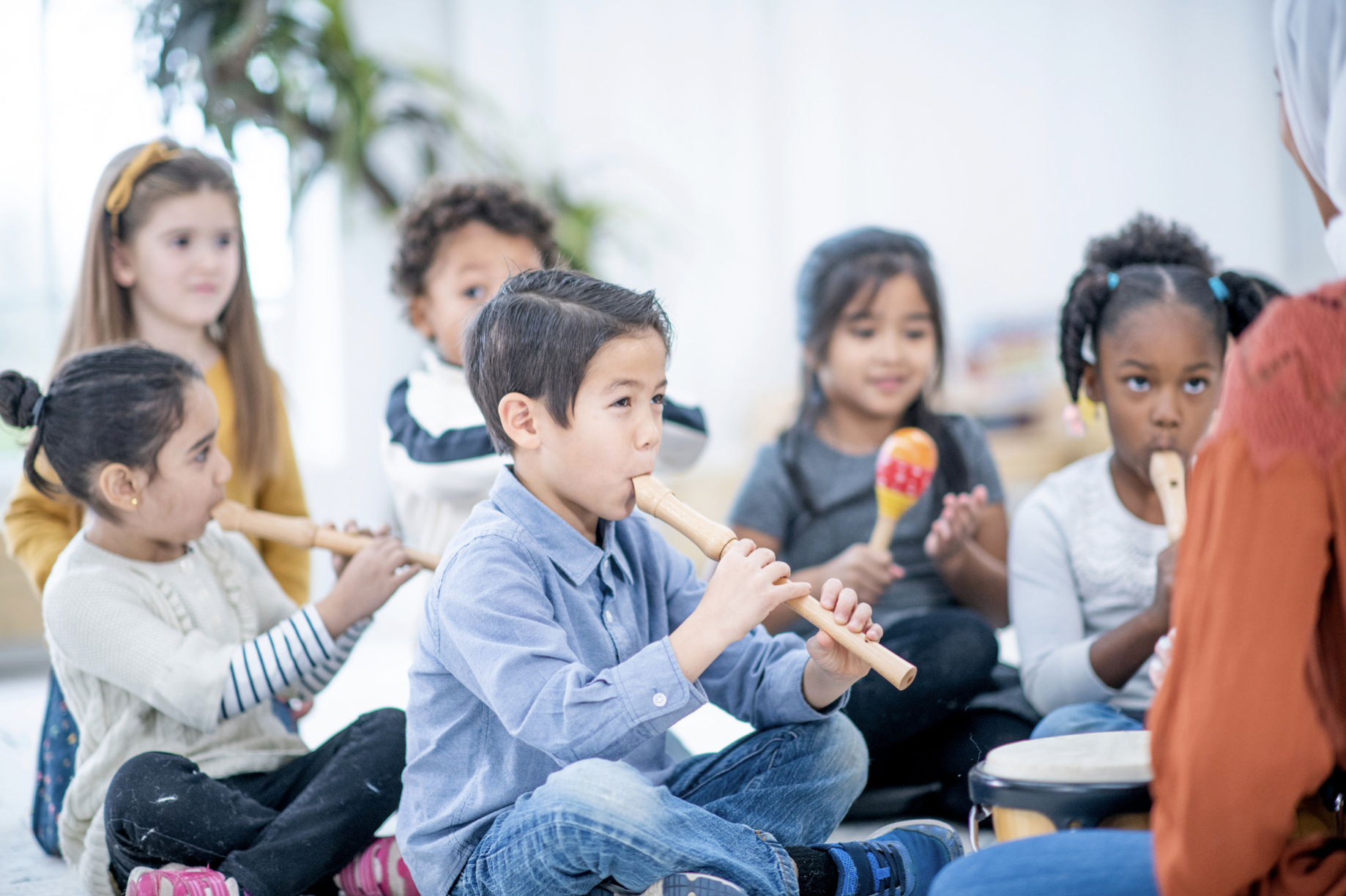
"The power of music and the plasticity of the brain go together very strikingly, especially in young people." Oliver Sachs
Music enhances our lives in countless ways, from motivating our workouts, soothing our emotions, and enlivening our social gatherings. Our favorite movies and TV shows would be flat and weird without their musical soundtracks. We idolize our favorite singers and musicians because they bring so much to our lives, but music has even more power than we may realize.
While there has been debate on whether passive listening actually makes us smarter, hard science leaves no debate on the many ways music inspires and enhances learning. A 2002 study by the College Entrance Examination Board found that students involved in public school music programs scored 107 points higher on the SATs than students with no participation. Similarly, a Harris Interactive poll in 2006 found that schools with music programs have an estimated 90.2% graduation rate and 93.9% attendance rate compared to schools without music education, which average a 72.9% graduation rate and 84.9% attendance rate.
Furthermore, the Texas Commission on Drug and Alcohol Abuse found that secondary students who participated in band or orchestra reported the lowest lifetime and current use of all substances (alcohol, tobacco, illicit drugs). Music is magic. It has been shown to reduce stress and anxiety, help us heal, and improve memory.
In other words, music makes us ready to learn, helps us learn, and helps us remember what we learned. For example, "Conjunction junction, what's your function?" Did your mind automatically fill in the next lyrics, "hooking up words and phrases and clauses," from the Schoolhouse Rock videos that some of us grew up watching on PBS? The tunes and catchy lyrics enable us to retain the academic content for several decades without review. Savvy teachers are still using these musical gems in classrooms. You can find Schoolhouse Rock songs and episodes on YouTube. Would we ever have learned the preamble to the constitution any other way? "Unpack Your Adjectives" absolutely leveled up the writing in my middle school English classes.
The possibilities don't end with Social Studies and English Language Arts. Math and music are indivisible. By understanding beat, rhythm, and scales, students learn how to divide, create fractions, and recognize patterns. Background music improves memory for any content area when the same music is played during learning and again during recall.
While we don't yet know all the whys and hows around music and learning, we do know that music engages us emotionally. When humans are engaged emotionally, we are more ready and more likely to learn. For the teacher who may not be musical or musically literate, QuaverEd is a high-quality, evidence-based resource that makes this cross content integration effortless. Music is foundational to all of Quaver's programs and curriculum. Brigette Trigg, a teacher from Forsyth County in Georgia, confirms that, "The retention of standards and skills covered have greatly increased."
Founded in 2009 as a K-8 music education resource, Quaver has expanded their offerings to include Social Emotional Learning, Music Integration across the content areas, full-day Pre-K, and they plan to launch Quaver Health in 2021. Quaver lessons use music to connect to grade-appropriate concepts in academic, social, and emotional arenas and provide ample opportunities for classroom teachers to connect their lessons to musical concepts as well.
When surveyed, 97% of Quaver teachers reported an increase in concept retention, assessment performance, engagement, and positive impact. Research further shows that music even increases equity. Experts say students of color do better in school, have higher graduation rates, and have a better chance of getting into college when exposed to music education on an ongoing basis throughout their K-12 education. (Children’s Music Workshop)
“... music changes the brain in ways that affect other cognitive abilities,” says Ani Patel, Professor of Psychology at Tufts University and the author of Music, Language, and the Brain, “this could have a real impact on the value we put on it as an activity in the schools, not to mention all the impact it has on emotional development, emotional maturity, social skills, stick-to-itiveness, things we typically don’t measure in school but which are hugely important in a child’s ultimate success.”
It's not new or surprising that music helps us both learn and remember what we've learned. What is surprising is that schools across the country continue to respond to budget cuts by reducing or eliminating music programs. While baffling and frustrating, that need not stop educators from taking advantage of this powerful tool by integrating music into regular classrooms and all across the content areas. Quaver can help.
"QuaverEd truly helped me ignite my students' learning and engagement to a new level using technology and interactive lessons," says Crystal Peters, from Dixie Elementary Magnet School, Lexington, KY. "The high-quality curriculum and smiles, laughter, creation, performances, and deep reflections from our students using the curriculum says it all."


